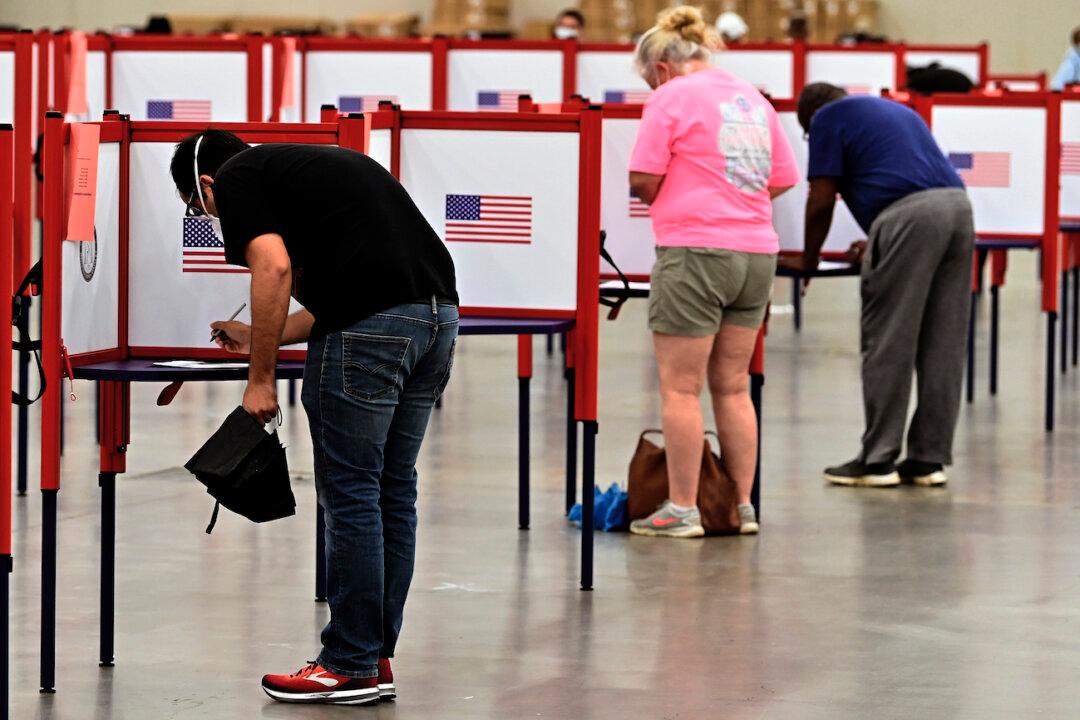LOUISVILLE, Ky.—Voters endured 90-minute waits in Kentucky’s second-largest city, but the biggest hurdle in Tuesday’s congressional primaries seemed to be what wasn’t happening: quick counting of mail-in ballots in that state and New York. Final results in top races seemed unlikely for days.
First-term state legislator Charles Booker was hoping a late surge would carry him past former Marine fighter pilot Amy McGrath for the Democratic Senate nomination from Kentucky. And in New York, political newcomer Jamaal Bowman was seeking to derail House Foreign Affairs Committee Chairman Eliot Engel’s bid for a 17th term in Congress.





